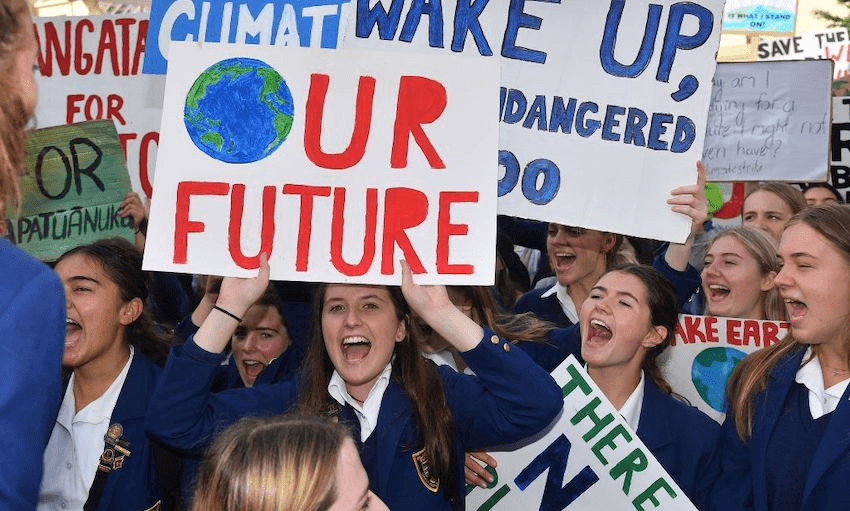Countries that signed up to the Paris agreement promised to review their efforts every five years, but already New Zealand has stumbled, writes Bronwyn Hayward.
Saturday marked five years since the Paris Climate Agreement was signed. That agreement was the moment that the world’s governments (196 countries) finally agreed climate change was real, was happening now, and that we need to take far-reaching action if we want to try to keep the world to less than 2 degrees warmer on average than it was back in the 1880s (when we started emitting lots of greenhouse gases in the industrial revolution).
Since the Paris Agreement, our collective political imagination about what is possible has expanded. Two years ago the world had not heard of Greta Thunberg or the school strikes, and just a year ago no one had heard of Covid-19 and few could imagine that we could dramatically change our lifestyles and pause economic activity to tackle a virus. Real change is possible.
However, the Paris climate agreement is voluntary. Under the agreement, governments are free to set their own targets to cut emissions and the only real way the world has to ensure governments take serious action to cut emissions and protect their populations is moral pressure. The Paris agreement relies on shaming and pressuring governments to increase their effort to cut their own emissions and increase action to protect citizens every five years. This means journalists, academics, community advocates and groups like the school strike have to constantly speak out about inaction.
Personally, I find the way we leave the heavy burden of calling governments to account to children – even children as brave and serious as school strikers – as pretty outrageous. Many young people feel increasingly anxious about the future yet the world expects them to do the work of pressuring governments to act. That isn’t sustainable or fair.
Given the intergenerational inequality children, especially Indigenous and Pacific children, already face and will continue to face in a chaotic climate of increasing storms, sea-level rise, longer droughts, new diseases and wildfires, governments have to step up to monitor their own action.
Countries that signed up to Paris promised to review their efforts every five years, but already New Zealand has stumbled. Our first Paris 2030 target which pledged to reduce greenhouse gas emissions by 30% from the levels they were in 2005 was recognised to be inadequate when it first set under a National Government in 2015. But it has so far remained unchanged under two successive Labour-led governments. If all nations pledged to do as little as New Zealand, the world would experience an average temperature rise of 3 degrees when children born this year turn 80.
Our current government has promised to review the target after the first Climate Commission recommendations. The question remains: why did we wait? If it was obvious five years ago we needed to set a more ambitious target and plan, why leave this to a commission? That means New Zealand has fallen behind our Paris promises because by now, we should be increasing our pledge, not just starting to set a proper one. And why so little action? As a small country with an old transport fleet and no regulations on the emissions from cars, serious steps include regulating car emissions, phasing out fossil-fuelled vehicles and supporting our cities to provide greener public transport.
Equally as worrying is we haven’t taken any real action to protect our populations through a national adaptation plan. It is great that we hope to draft an Adaptation bill but we will need to pass that into law in this term of government to avoid kicking the can down the road again. Plans matter but they’re not actions. Again, some of the actions we need to take are obvious like moving homes out of areas at risk of sea-level rise and this needs national leadership.
We have created a serious climate inequity burden for children and future generations. Our youngest citizens face the physical impacts and the financial costs of our failure to act. It will be hard to convince New Zealanders our cheap old cars come at a huge cost to our children’s future or that reducing methane from agriculture really makes a difference, but this is the least of what we owe the children of New Zealand. Our government has started to clean up its own house by pledging to get the public service to net carbon zero by 2025. This is an important step, but five years after Paris it’s also time to get the whole country moving. We all need to start taking serious action. Now.

